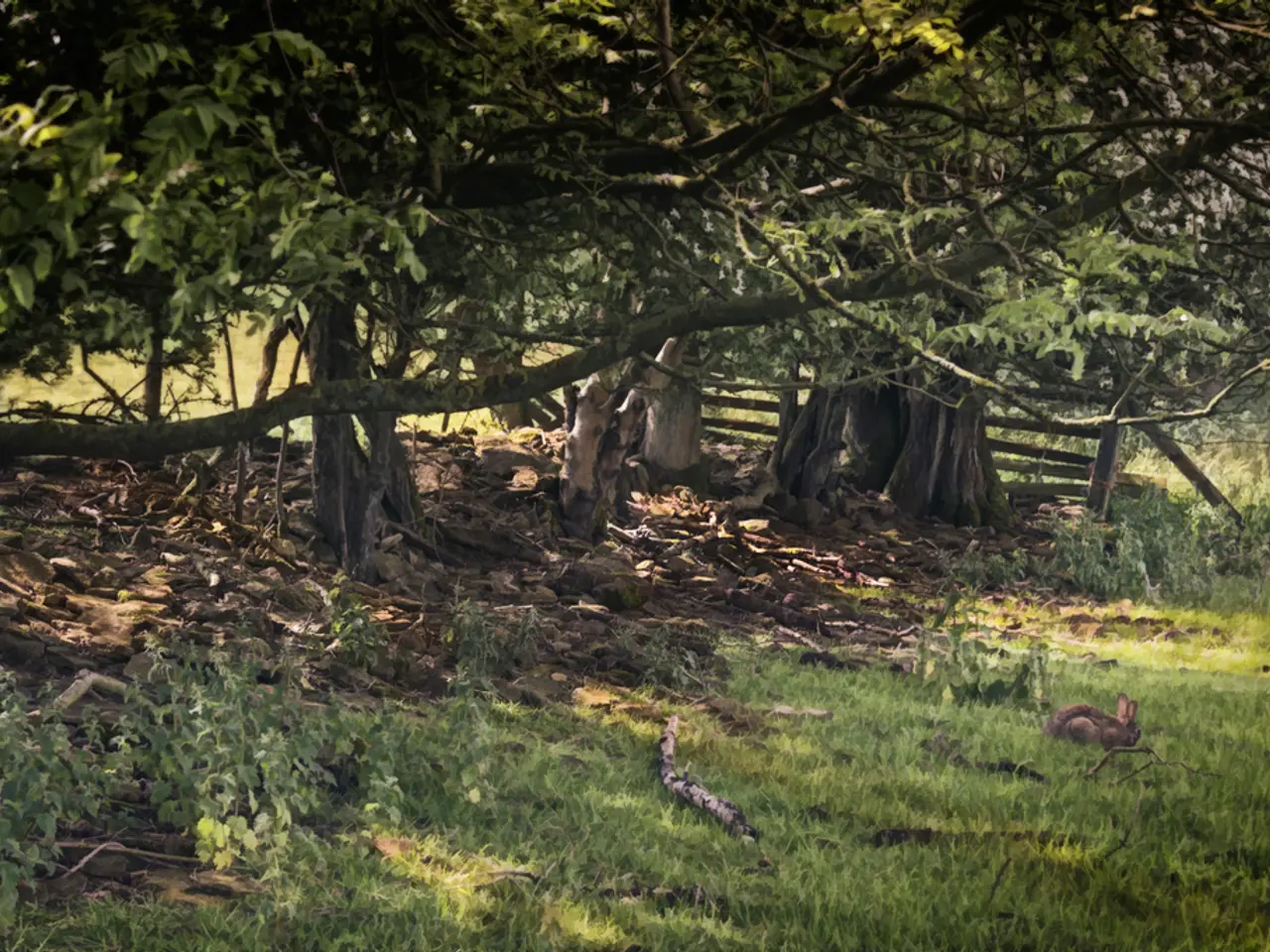Organic Grass Maintenance Strategies
In the pursuit of a beautiful and healthy lawn, it's time to consider sustainable practices that save time, energy, and money. Here's a rundown of some key strategies for a natural lawn care routine.
Choosing the Right Plants
Selecting plants that are suitable for your climate and soil is crucial. Opt for native or well-adapted turfgrass and groundcovers that require less maintenance, water, and fertilizer. By limiting lawn areas to only those needed for active use and replacing other parts with low-maintenance native or eco-lawn mixes, you're setting the foundation for a sustainable lawn.
Watering Efficiently
Watering deeply but infrequently encourages deep roots and drought tolerance. Consider using drip or micro-sprinkler irrigation and group plants by water needs. If possible, collect rainwater for reuse, and mow lawns at proper heights (e.g., 2-3 inches for perennial ryegrass).
Organic Mulching and Fertilizing
Applying 5-10 cm of organic mulch, such as leaves, grass clippings, straw, or wood chips, helps conserve moisture, reduce weeds, moderate temperatures, and add nutrients naturally to the soil. Remember to keep mulch away from stems to avoid rot.
Improving soil health with compost and natural nutrient cycling is another essential aspect of sustainable lawn care. Compost kitchen scraps and yard waste to enrich soil and reduce landfill waste. Opt for slow-release natural fertilizers sparingly to avoid pollution.
Minimizing Synthetic Inputs
Avoid synthetic fertilizers and pesticides as much as possible. Let natural processes recycle nutrients and control pests. Many sustainable lawn care services focus on minimizing chemical inputs while maintaining healthy turf.
Alternatives to Traditional Lawns
Consider alternatives to traditional lawns, such as xeriscaping with drought-resistant plants and hardscaping, which reduce water needs and eliminate pesticides and fertilizers. Artificial turf can also save water and reduce maintenance time, though it has a higher upfront cost.
Products for Sustainable Lawn Care
- The Organic Turf Starter Fertilizer, with a ratio of 4-6-4 and weighing 30 lbs, provides a natural way to boost your lawn's nutrient levels.
- A Premium Drinking Water Safe Garden Hose, with a slim diameter of 7/16", ensures efficient watering.
- Milky Spore Powder, a Japanese Beetle Control product, weighing 10 oz, offers a natural solution to common pest problems.
- Microclover Seed is available in a 1 lb package, providing a low-maintenance, nitrogen-fixing groundcover for your lawn.
- Corn Gluten Organic Fertilizer is available in two variants: 8-0-0 with 40 lbs and 9-0-0 with 30 lbs, offering slow-release natural nutrients for your lawn.
- Hungry Bin is a Continuous Flow Worm Composter, perfect for turning kitchen scraps and yard waste into nutrient-rich compost.
- A Premium Polyurethane Soaker Hose is also available, ensuring efficient watering for your plants.
- Wildflower Farms offers Eco-Lawn Grass Seed in a 5 lb package, providing a mix of drought-resistant, low-maintenance grasses for your lawn.
- MicroLawn Grass Seed & Microclover Blend is available in a 5 lbs package, offering a sustainable, low-maintenance solution for your lawn.
By adopting these practices, you're reducing resource use and ongoing expenses while fostering a resilient, natural lawn that needs less time and effort to maintain effectively and sustainably. Start gradually by implementing 1–3 practices per year to build a sustainable lawn care routine.
- To strengthen the turf and promote natural growth, opt for eco-friendly products such as the Organic Turf Starter Fertilizer or Corn Gluten Organic Fertilizer for slow-release, natural nutrients, and incorporate low-maintenance groundcovers like microclover into your home-and-garden landscape.
- In your quest for a sustainable lifestyle, consider alternatives to traditional lawns, like organic solutions provided by products such as Wildflower Farms' Eco-Lawn Grass Seed or MicroLawn Grass Seed & Microclover Blend, which are designed to reduce water needs and minimize the use of pesticides and fertilizers.





